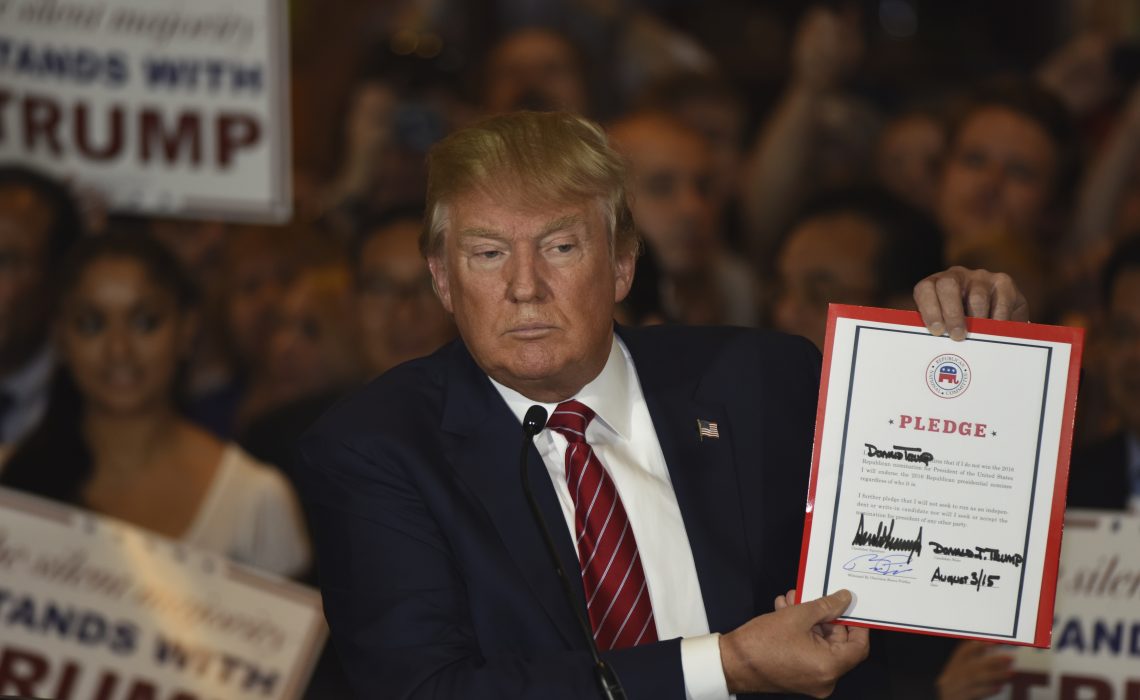by Daniel Greenfield

Medicare for All really means nothing for no one.
First Venezuela ran out of other people’s money. Then it couldn’t afford to print its own currency. Hospitals ran out of medicine, power and now water. The health care is free. You just can’t get it.
Here’s what universal health care looks like once socialism finishes delivering on all its promises.
There’s no medicine. Good luck rolling your own.
When Jesus Eduardo Rodriguez could no longer find his life-saving HIV medicine in Venezuela, a country where everything from chicken to aspirin is in short supply, he turned to Google about a month ago looking for hope. What he found were stories about a Brazilian doctor using a plant called bay cedar, or guásimo, to treat his HIV-positive patients.
Out of options, Rodriguez started self-medicating with bay cedar. Buying the dark green leaves at the market, he mixes them with water in a blender and drinks the pungent brew three times a day.
The hospitals begin shutting down. (ObamaCare was a small scale warning of what is to come.)
For years, among the proudest boasts of the Bolivarian Socialist administration was that it eradicated hunger, reduced poverty and improved healthcare for the poor.
The Venezuelan Health Observatory, a research centre at the Central University of Venezuela in Caracas, estimates that fewer than 10% of operating theatres, emergency rooms and intensive care units are fully operational. It says 76% of hospitals suffer from scarcity of medicines, 81% have a lack of surgical materials and 70% complain of intermittent water supply.
“We are seeing a collapse in the public health system.” said Maritza Landaeta, a senior member of the Health Observatory. “Venezuela is witnessing a miracle, a miracle of destruction.”
In the basement, the radiography room was permanently closed; patients were sleeping on dirty beds in the corridors. On the ground floor, doctors were staging a protest over shortages of drugs and medical equipment. In the second-floor trauma ward, some patients have been waiting for six months to have bones reset because there are no rods, pins and plates. In the paediatric ward, impoverished mothers of malnourished children were soliciting donations of food and medicine that the hospital could not provide.
In the orthopaedic department, there are no weights for traction devices, so nurses used Coke and Pepsi bottles filled with water. Two dangle at the foot of the bed of Daniel Usman, whose femur was broken in a gang shootout. He says has been waiting two months for surgery because the blood bank does not have his type. Considered a suspect, he is permanently handcuffed to the hospital bed and has to buy his own painkillers.
Staff say they have to reuse surgical gloves unless patients bring their own. There used to be six working radiotherapy machines; now there are none. Of the 10 operating theatres, only two are in use, though only sporadically because it is often hard to find anaesthetics. The air conditioning is out of order. Only one lift works. The x-ray is functioning, but there there are no printing materials, so doctors have to diagnose and operate based on mobile phone photos of the screen.
At one of Caracas’ biggest public hospitals, most bathrooms are closed. Patients fill jugs from a tiny tap on the ground floor that sometimes has a trickle of water. Operations are postponed or canceled.
The Central Venezuelan University hospital, once a Latin American leader, is reeling as taps run dry.
“I have gone to the operation bloc and opened the tap to wash my hands, as you must do before a surgery, and nothing comes out,” said gynecologist Lina Figueria
Information Minister Jorge Rodriguez in July announced a “special plan” to fix the issues, but did not provide details. The Information Ministry and Hidrocapital did not respond to a request for information.
Lack of water – and taps that sometimes spurt out brown liquid – have triggered health concerns in a country lacking basic antibiotics and vaccines.
But I’m sure Bernie Sanders and Alexandria Ocasio-Cortez are too smart to let that happen here. Who says history repeats itself or that we should learn anything from it? It’s bound to work this time.
And if it doesn’t, what’s the worst that could happen?
In the low-income neighborhood of Catia, university professor Mariangela Gonzalez, 64, has 127 bottles, gas containers and pots clogging the entrance to her house.
“When the water comes on, we have to run,” said Gonzalez.
She’s a university professor.
San Francisco is already a sewer. Imagine what life would be like under full socialism in hipsterville?
ABOUT DANIEL GREENFIELD
Daniel Greenfield, a Shillman Journalism Fellow at the Freedom Center, is a New York writer focusing on radical Islam.


